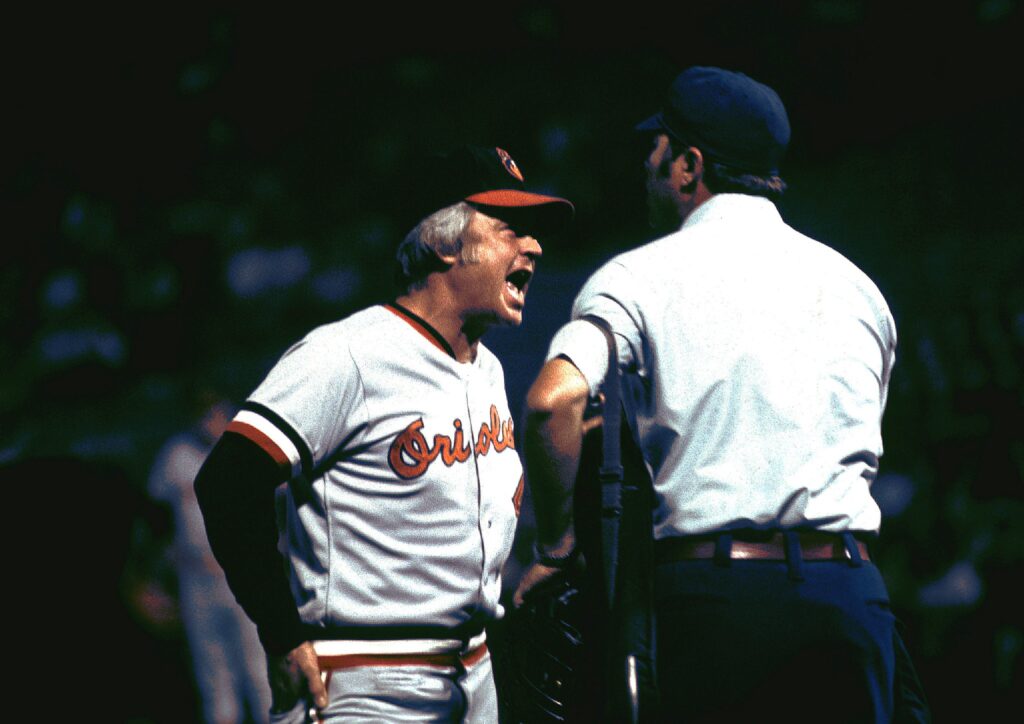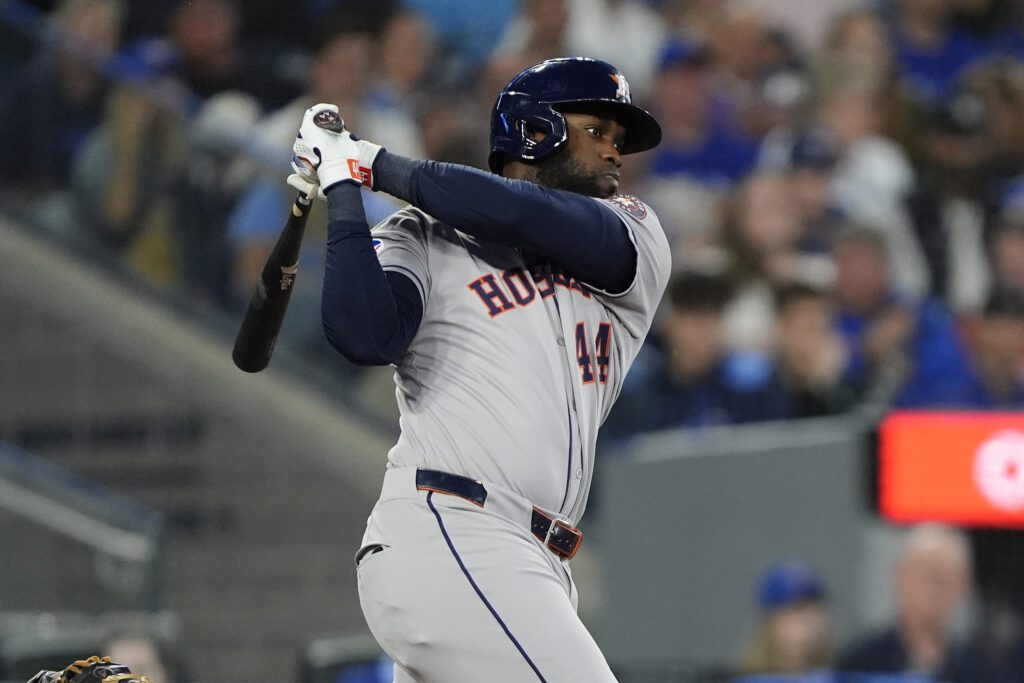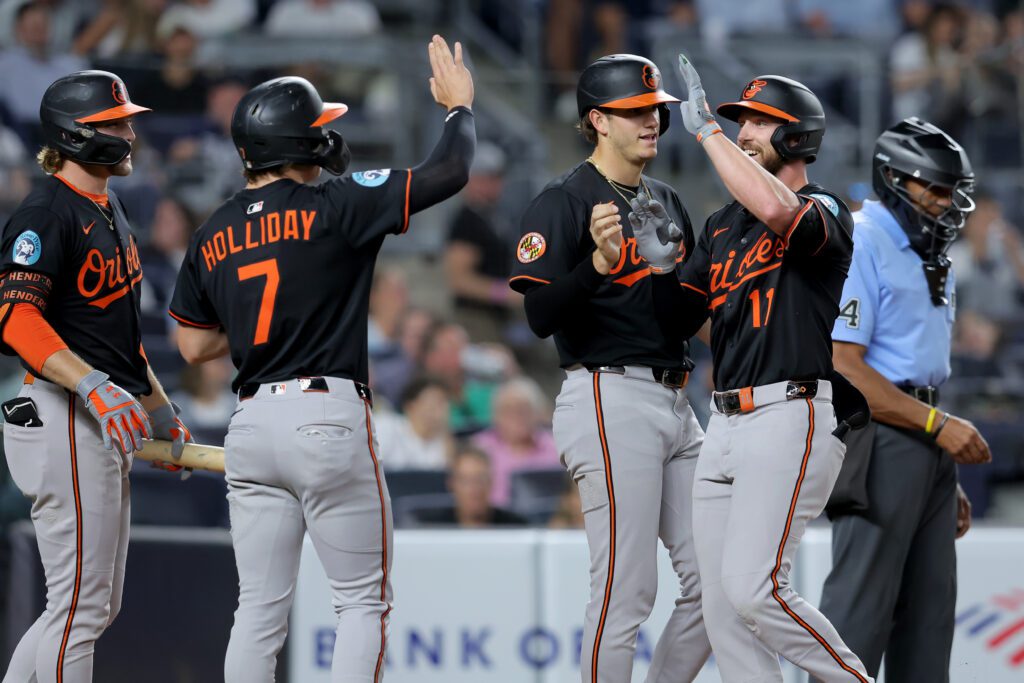This is the first article in a series that looks at the five best players at each position for the Baltimore Orioles. First up are the catchers and managers.
Although the Baltimore Orioles did not take the field in their current form until 1954, the team was essential in the creation of a second major league. Out of the rubble of the five-year National Association came the National League in 1876. There were other leagues that challenged the NL for supremacy in the late 1800s, the American Association (1882-91), the Union Association (1884) and the Players’ League (a high-paying circuit that lasted for just one season in 1890).
The greatest challenge to the National League, the Western League, started picking up steam in 1894, when sportswriter Byron “Ban” Johnson was named league president. As the turn of the 20th century neared, Johnson spoke to current Western League team owners as well as some former Players’ League executives and began to position teams in cities with current NL teams to go head-to-head against the senior circuit. The new American League tried to move the Milwaukee franchise to St. Louis to compete for fans with the Cardinals, but the sale of the team fell through at the last minute, leaving the Brewers to spend one more year in Wisconsin. Johnson found a buyer in time for the 1902, and the franchise became known as the St. Louis Browns.
During their 52-year stay in the “Gateway to the West,” the Browns had just 12 winning seasons, finished second in the American League twice (their first season in 1902 and 1922, when they finished just a game behind the Yankees in the early years of their dynasty). The Browns broke through once, in the 1944 season in which many players were serving in World War II. The World Series that year was a battle of St. Louis, which the Cardinals won four games to two.
After moving to Baltimore, the team slowly began working toward respectability. In the 18-year period from 1966-83, the Orioles went to the playoffs eight times, were a six-time pennant-winner and won the World Series three times. In the 40 years since 1983 however, Baltimore has been to the postseason just five times, but they are in first place in the American League as of this writing. In this story, we look at the catchers and managers who have had the most success for the largely downtrodden franchise.
The Best Catchers and Managers in Baltimore Orioles History
Catchers
Honorable Mention – Adley Rutschman – Someday, if he keeps up this pace, he might top this list. In 2022, he finished second to Seattle’s Julio Rodriguez in the Rookie of the Year voting. This season, he was named and All-Star and is the face of a team that is in first place in their division.
5. Chris Hoiles – In 10 years with the Orioles, he played in 894 games and hit .262 with 151 home runs and 449 runs batted in. Although he never made an All-Star team, Hoiles’ best season was 1993, when he posted career highs with a .310 average, 29 homers and 92 RBIs. He was also the catcher on teams that reached the ALCS in back-to-back seasons (1996-97).
4. Matt Wieters – A solid talent both on offense and defense who was hampered by injuries. In eight seasons with Baltimore (2009-16), Wieters was selected as an All-Star four times and won two gold gloves. He also played in seven postseason games with the Orioles but missed their most important contests in the 2014 ALCS after undergoing Tommy John surgery early in the season. Wieters played in 882 games, hit 117 home runs and drove in 437 runs. He hit 20 or more homers in three straight seasons (2011-13) and knocked in at least 60 runs four times.
3. Gus Triandos – During eight seasons with the Orioles (1955-62), he played 953 games, had 794 hits, 142 home runs and 517 runs batted in. While Trianos never was on a playoff team in Baltimore, he was a four-time All-Star. He hit at least 20 home runs three times with a high of 30 in 1958, and he drove in at least 70 runs in four straight seasons (1956-59).
2. Hank Severeid – Many catchers in the early 1900s were light hitters who did their best with oftentimes inferior equipment. Severeid was a decent hitter and solid fielder during his 11 seasons with the Browns (1915-25). In 1,182 games, he hit .290 with 1,121 hits and 485 runs batted in (despite only hitting 17 home runs). Severeid hit over .300 in four straight seasons (1921-24), and he had at least 50 home runs four times, with 78 coming in 1922, when the Browns fell just short of catching the Yankees for the American League pennant.
1. Rick Dempsey – While he did not have the offensive prowess of Severeid (he hit just .238), Dempsey was a better fielder and was better in the clutch. He appeared in two World Series with the Orioles and was named MVP of Baltimore’s win in 1985 after hitting .385 with a home run against the Phillies. In 12 years with the Orioles (1976-86 and 1992), Dempsey appeared in 1,245 games, hit 75 home runs and drove in 355 runs. His best season offensively was 1985, when he hit .254 with 12 homers and 52 RBIs. Dempsey went on to win another title with the Dodgers in 1988.
Managers
Honorable Mentions – Davey Johnson was a three-time All-Star and gold glove recipient as the Orioles second baseman from 1965-72. As a manager, he led the 1986 Mets to the championship and then had success with the Reds in the early 1990s. He was Baltimore’s manager for just two seasons (1996-97), but he had a 186-138 record and led the club to the ALCS in both years.
Joe Altobelli took over a team Earl Weaver built and led them to the championship in 1983. Despite finishing eight games over .500 the following year, the Orioles fell to fourth place. In 1985, a losing streak plus problems with owner Edward Williams led to Altobelli’s dismissal and the return of Weaver. Altobelli went 212-167 with Baltimore.
Paul Richards went 517-539-7 in seven seasons with Baltimore, and the club started to move toward respectability under him. The Orioles went 89-65 in 1960 and finished in second place int he American League, eight games behind the Yankees. With a month left in the following season, Richards resigned to become the first general manager of the Houston Colt .45s (which would later become the Astros).
5. Jimmy McAleer – After a 13-year playing career spent primarily with the National League’s Cleveland Spiders in the 1890s, McAleer went 551-632-26 in eight seasons with the Browns, with the win total ranking third in team history. While the Browns were better than .500 three times in his tenure, his best season was 1902, when he led his team to a 78-58-4 record and a second-place finish in the American League (five games behind the Philadelphia Athletics).
4 Luke Sewell – After a 20-year big league career as a catcher, Sewell took over as St. Louis’ manager midway through the 1941 season. Three years later, with the world at war and many baseball players on active duty, the Browns FINALLY won the American League pennant with an 89-65 record, but they lost the World Series to their crosstown rivals, the Cardinals. Overall, Sewell went 432-410-8 in six seasons.
3. Hank Bauer – Another former player, Bauer was a three-time All-Star outfielder and a seven-time champion during a 14-year career spent primarily with the Yankees. He went 407-318 in five seasons and Baltimore reached 90 wins in each of his first three seasons at the helm. Under his guidance, the Orioles went 97-63 in 1966, winning the pennant for the second time and finally taking home the title by sweeping the Dodgers in the World Series.
2. Buck Showalter – Despite having a losing record (669-684), he ranks second in team history in managerial victories. In nine seasons with the Orioles, Showalter led the team to the playoffs three times. In 2014, Baltimore went 96-66. Although the Orioles were swept by the Royals in the ALCS, Showalter was named American League Manager of the Year.
1. Earl Weaver – By any measure, Weaver is the franchise’s greatest manager. In 18 seasons (over two stints, 1968-82 and 85-86), his clubs posted a winning record in 17 of them. His 1,480-1,060-1 record includes five 100-win campaigns. Weaver led the Orioles to the playoffs six teams, including four American League pennants and a World Series title in 1970. In addition, he was the AL manager in the All-Star Game four times. Perhaps Weaver is best known for his fiery temper and arguments with umpires. He was ejected 96 times, which ranks fourth in baseball history. Weaver was inducted into the Baseball Hall of Fame in 1996 and passed away in 2013.
Upcoming
Baltimore Orioles First and Third Basemen – Coming soon
Baltimore Orioles Second Basement and Shortstops – Coming soon
Baltimore Orioles Outfielders and Designated Hitters – Coming soon
Baltimore Orioles Pitchers – Coming soon
Previous Series
A look back at the Atlanta Braves
Catchers and Managers
First and Third Basemen
Second Basemen and Shortstops
Outfielders
Pitchers
A look back at the Arizona Diamondbacks
Catchers and Managers
First and Third Basemen
Second Basemen and Shortstops
Outfielders
Pitchers



